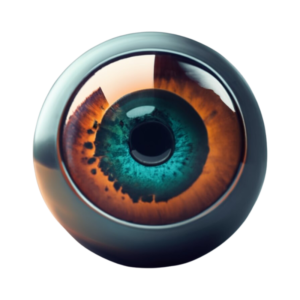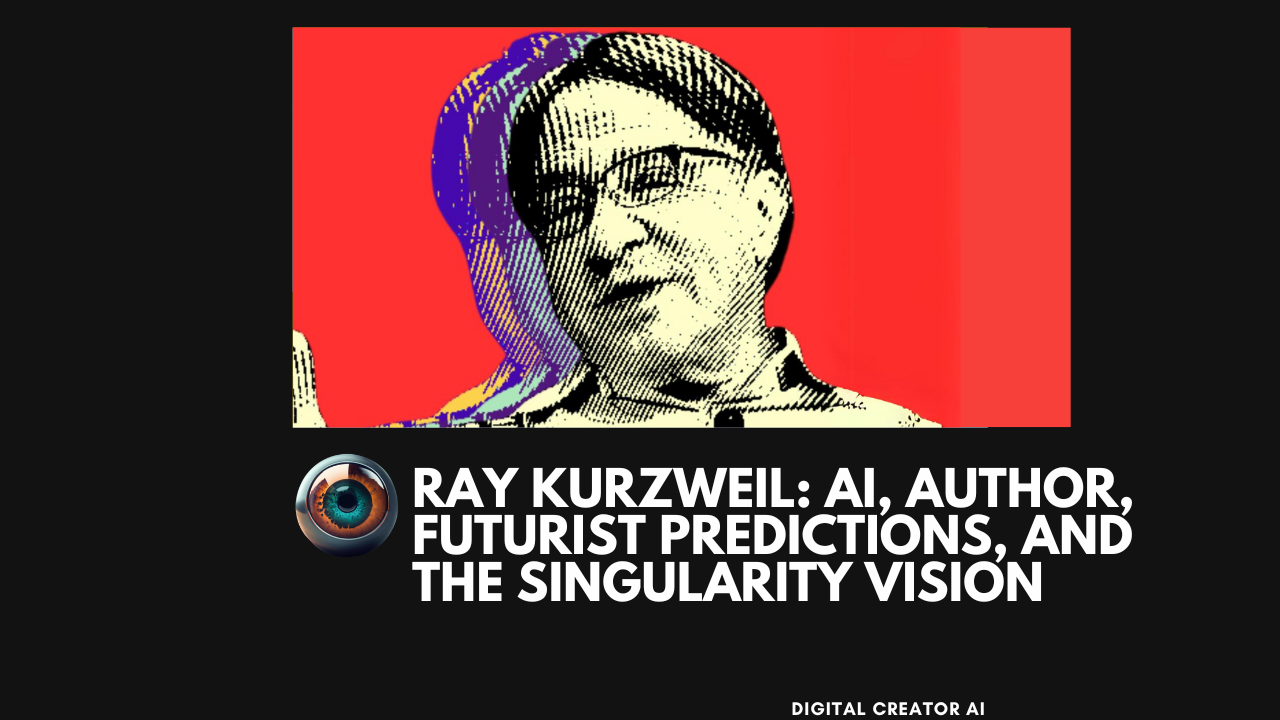Ray Kurzweil: AI, Author, Futurist Predictions, and the Singularity Vision
Introduction
Ray Kurzweil is a name synonymous with futurism, artificial intelligence (AI), and groundbreaking technological predictions. As a distinguished author and a pioneering thinker, Kurzweil has made significant contributions to our understanding of the future of technology, particularly through his bold predictions and the concept of the Singularity. This article delves into the life and works of Ray Kurzweil, his views on AI, his key publications, notable predictions, and his lasting legacy in the fields of AI and futurism.
Who is Ray Kurzweil?
Early Life and Education
Ray Kurzweil was born on February 12, 1948, in New York City. From a young age, Kurzweil exhibited an insatiable curiosity and a passion for invention. His interest in technology was largely influenced by his father, an accomplished musician and composer, and his uncle, an engineer who introduced him to the wonders of computing as early as the 1960s. Kurzweil’s drive for innovation was evident when he built his first computer at the age of 15 and created software that composed music, which won him national recognition and a coveted spot on a CBS television program.
Career Milestones
Kurzweil’s career is marked by a series of groundbreaking achievements. He founded Kurzweil Computer Products, Inc. in 1974, where he developed the first optical character recognition (OCR) system capable of recognizing any text font. This technology eventually proved crucial for assistive devices for the visually impaired. Beyond OCR, Kurzweil’s inventions span text-to-speech synthesis, music synthesizers, and much more.
In 2012, Kurzweil joined Google as a Director of Engineering, focusing on projects aimed at advancing artificial intelligence and natural language processing. His contributions at Google have significantly influenced the development of AI technologies we rely on today.
Ray Kurzweil’s Views on Artificial Intelligence
Defining Artificial Intelligence
To understand Kurzweil’s vision for the future of AI, it’s essential to grasp his definition of artificial intelligence. For Kurzweil, AI isn’t just about creating smart algorithms; it’s about developing systems that can understand, learn, and reason at a level comparable to or surpassing that of humans. He distinguishes between narrow AI, which specializes in specific tasks, and Artificial General Intelligence (AGI), which demonstrates comprehensive cognitive abilities akin to human intellect.
Predictions on AGI
Kurzweil has long predicted the emergence of AGI, which he believes will become a reality by the early 2030s. Central to his predictions is the concept of the Singularity—a point in time when AI will surpass human intelligence, leading to exponential technological growth and profound societal changes. Kurzweil forecasts that by 2045, this intelligence explosion will redefine human existence, a concept detailed extensively in his seminal work, “The Singularity is Near.”
The Singularity: What It Means for Humanity
Understanding the Singularity
The Singularity represents a transformative epoch wherein human and machine intelligence converge, resulting in unprecedented advancements. Kurzweil’s vision is rooted in the idea of exponential growth, where technological progress accelerates at a rate beyond our current comprehension. Historically, this concept builds on the work of figures like John von Neumann and I.J. Good, who speculated about the impact of self-improving machines.
Ray Kurzweil and the Year 2045
Kurzweil’s choice of 2045 as the landmark year for the Singularity is not arbitrary. He supports this prediction with data from various technological trends, particularly Moore’s Law, which observes the doubling of computing power approximately every two years. According to Kurzweil, this exponential growth extends beyond hardware, encompassing software, biotechnology, and other domains, all converging to fulfill his Singularity prophecy.
Implications of the Singularity
The advent of the Singularity carries profound societal, ethical, and economic implications. On the one hand, it promises solutions to some of humanity’s most enduring problems, such as disease, poverty, and environmental degradation. On the other hand, it raises significant ethical concerns, including issues of privacy, security, and the potential for misuse of advanced technologies. The essence of Kurzweil’s argument is that while the benefits are immense, a cautious and ethical approach is crucial to navigating this future.
Key Works by Ray Kurzweil
“The Age of Spiritual Machines”
Published in 1999, “The Age of Spiritual Machines” explores the future integration of AI into daily life, predicting that machines will eventually inhabit the realm of human experience, capable of emotions and consciousness. This book remains relevant today, as many of Kurzweil’s forecasts, such as AI-driven personalization and virtual reality, have already materialized.
“The Singularity is Near”
In “The Singularity is Near,” Kurzweil expands on his earlier works, presenting a detailed timeline of technological milestones leading up to the Singularity. Major predictions include advancements in nanotechnology, the rise of virtual bodies, and the merging of biological and non-biological intelligence. These foresights align closely with contemporary trends in AI and related fields, affirming Kurzweil’s influence on the discourse surrounding future technologies.
Other Notable Books
Kurzweil’s literary contributions extend beyond these two major works. Books like “How to Create a Mind” delve into the intricacies of the human brain and how understanding it can lead to the development of AGI. His writings have not only shaped public opinion on AI but have also propelled academic and industrial research.
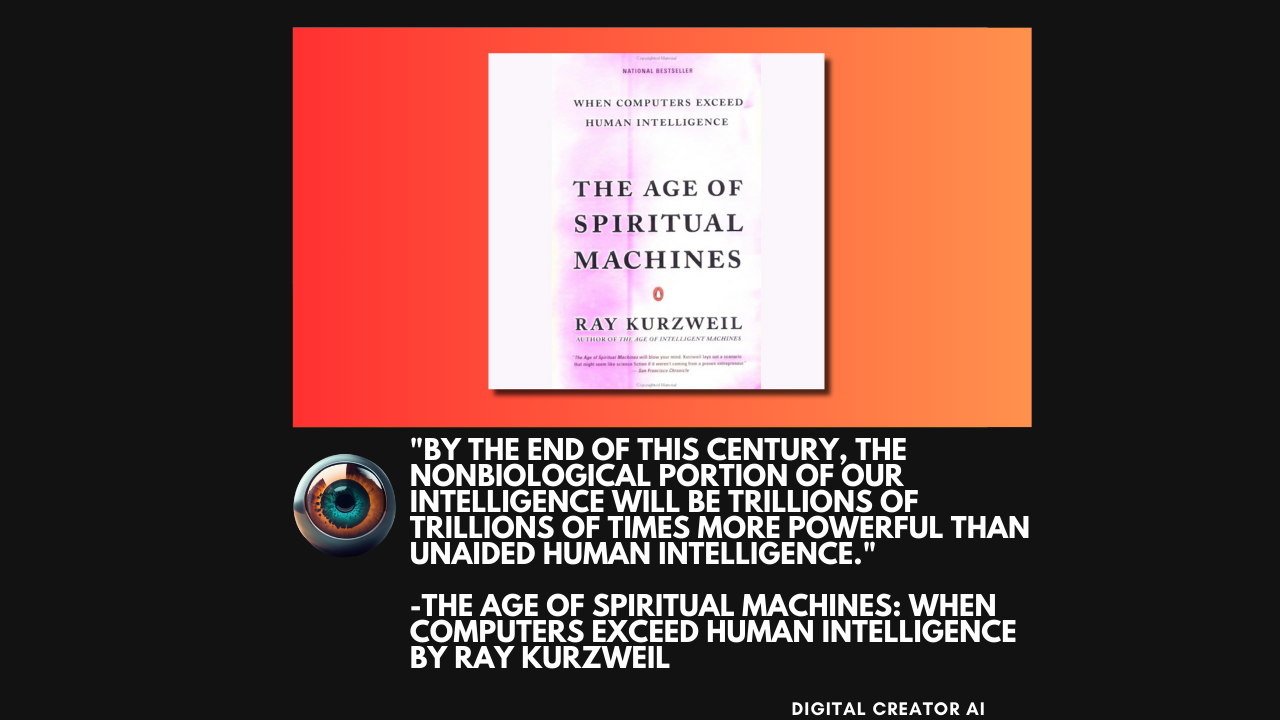
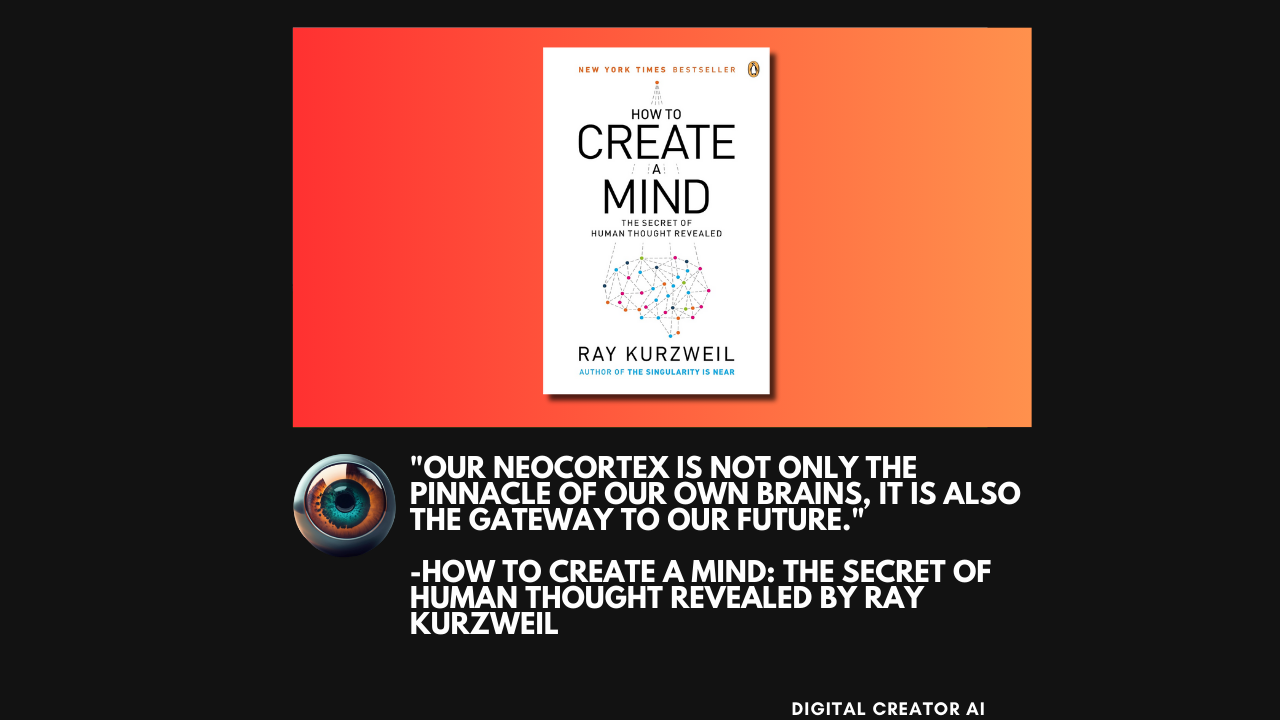
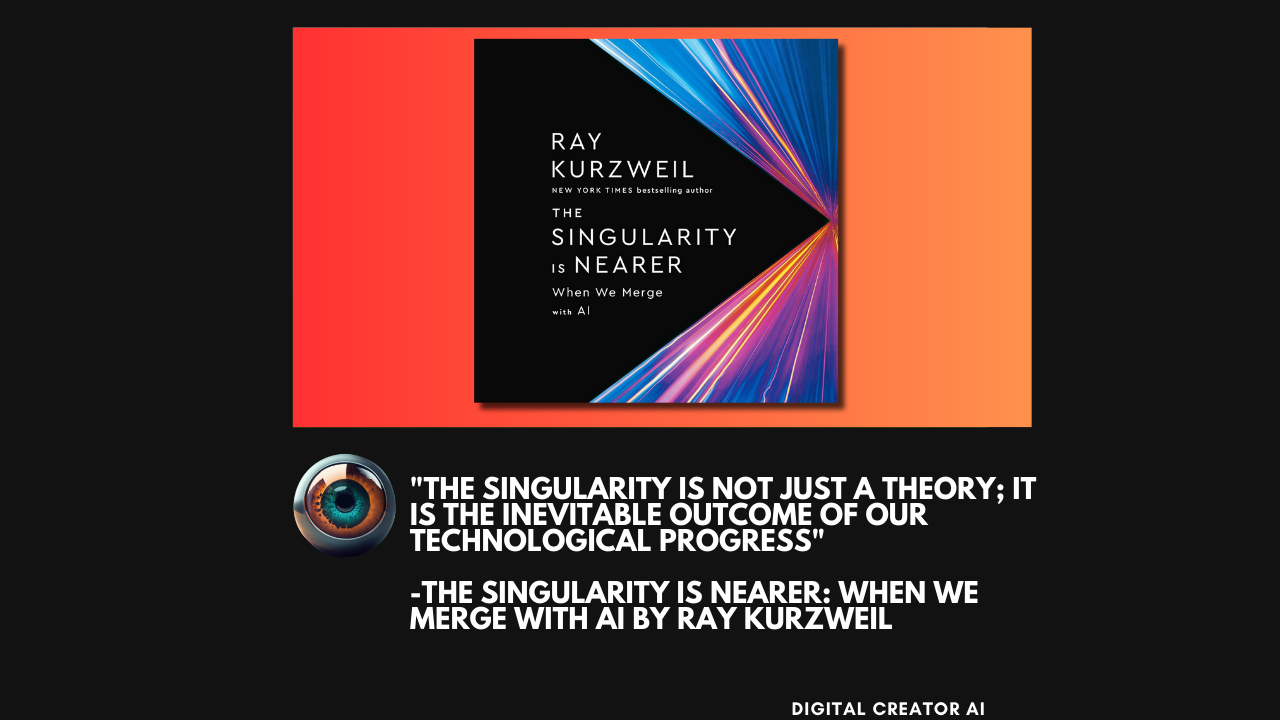
Notable Predictions and Their Accuracy
Predictions That Have Come True
Kurzweil boasts an impressive track record for accurate predictions. For instance, he anticipated the widespread use of wireless internet, the dominance of mobile devices, and the explosion of digital media—all of which are integral to modern life. His ability to foresee these developments is a testament to his deep understanding of technological trends.
Current Predictions
Looking ahead, Kurzweil continues to make bold predictions. He foresees advancements in AI leading to significant improvements in healthcare, energy solutions, and even human cognition through brain-computer interfaces. As we approach the milestones he’s outlined, tracking the accuracy of these predictions will be crucial in evaluating the future landscape of AI and technology.
Ray Kurzweil and the Future of Search Engines
Revolutionizing Search at Google
At Google, Kurzweil has been instrumental in advancing natural language processing, enabling search engines to understand and respond to queries more comprehensively. His work on AI-driven search technologies promises more intuitive and intelligent search experiences, reshaping how we interact with information.
The Rise of AI-Powered Search Engines
The evolution of search engines, exemplified by tools like Perplexity, highlights Kurzweil’s vision of integrating AI deeply into these platforms. By enhancing their understanding of context and intent, AI-powered search engines are becoming more adept at delivering relevant and nuanced results, transforming our access to information.
Life Extension and Transhumanism
Kurzweil’s Views on Life Extension
A vocal advocate for life extension, Kurzweil envisions a future where biotechnology and AI collaborate to significantly increase human lifespan. He believes in leveraging data and interventions to counteract aging, ultimately leading to a point where technology can indefinitely sustain human life.
Transhumanism
Central to Kurzweil’s philosophy is transhumanism—the idea that humans can transcend their biological limitations through technology. This concept encompasses enhancements in physical, cognitive, and emotional capacities, challenging our traditional notions of humanity. The ethical implications of such enhancements are profound, necessitating thoughtful consideration as we advance toward this future.
Kurzweil’s Legacy and Quotes
Memorable Quotes by Ray Kurzweil
Kurzweil’s quotes encapsulate his vision and philosophy. Statements like “The best way to predict the future is to invent it” and “We are the species that inherently seeks to extend its boundaries” reflect his relentless optimism and forward-thinking mindset. These quotes continue to inspire innovators and thinkers around the world.
“Within a few decades, machine intelligence will surpass human intelligence, leading to The Singularity — technological change so rapid and profound it represents a rupture in the fabric of human history”. This quote encapsulates Kurzweil’s belief in the rapid advancement of AI and its transformative potential.
“By the time we get to the 2040s, we’ll be able to multiply human intelligence a billionfold. That will be a profound change that’s singular in nature. Computers are going to keep getting smaller and smaller. Ultimately, they will go inside our bodies and brains and make us healthier, make us smarter”. Here, Kurzweil predicts the integration of AI with human biology, leading to significant enhancements in our capabilities.
“Artificial intelligence will reach human levels by around 2029. Follow that out further to, say, 2045, we will have multiplied the intelligence, the human biological machine intelligence of our civilization a billion-fold”. This quote provides specific timelines for Kurzweil’s predictions about AI development and its exponential growth.
“I set the date for the Singularity – representing a profound and disruptive transformation in human capability – as 2045. The nonbiological intelligence created in that year will be one billion times more powerful than all human intelligence today”. Kurzweil offers a precise date for what he believes will be a pivotal moment in human history.
“When you talk to a human in 2035, you’ll be talking to someone that’s a combination of biological and non-biological intelligence”. This statement reflects Kurzweil’s vision of a future where humans and AI are deeply integrated.
The Impact of Ray Kurzweil
Ray Kurzweil’s influence extends across multiple domains, from AI research and technological innovation to public discourse on the future. His role as a thought leader is cemented by his accurate predictions, groundbreaking inventions, and visionary writings, ensuring his legacy in shaping the trajectory of human progress.
Conclusion
Ray Kurzweil stands as a pivotal figure in the realm of futurism and AI, with a legacy defined by his bold predictions and transformative ideas. His work challenges us to reconsider our relationship with technology and to envision a future where human potential is boundless. As we reflect on Kurzweil’s insights, we are encouraged to engage critically with these concepts and ponder their implications for our own lives and the broader society.
Additional Resources
For further exploration of Ray Kurzweil’s work and the evolving landscape of AI and the Singularity, consider the following resources:
- KurzweilAI.net – Ray Kurzweil’s official website.
- More reading
- Interviews with Ray Kurzweil on platforms like Joe Rogan Podcast, Lex Freidman Podcast, YouTube and TED Talks.
